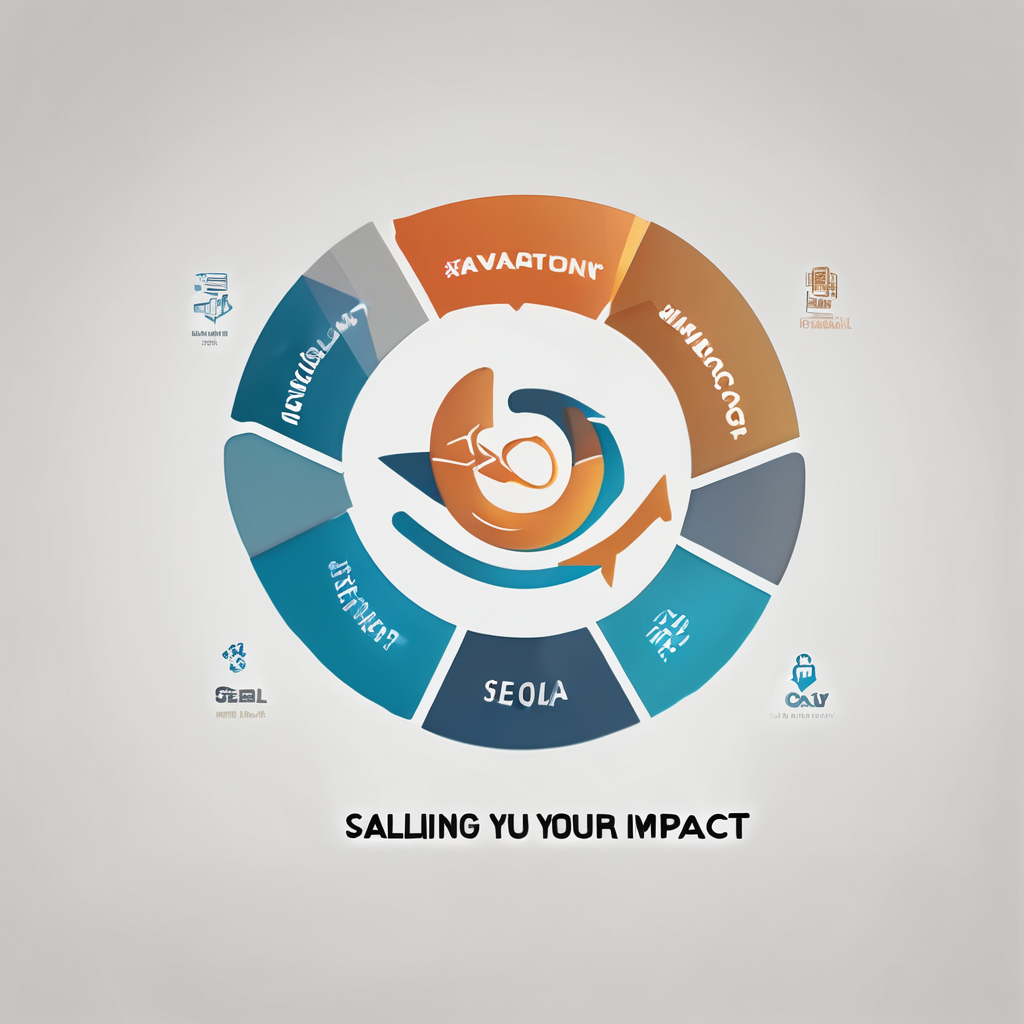In today’s competitive landscape, developing a resilient supply chain is crucial for the success of any retail business. The logistics industry has faced numerous challenges, from global disruptions to economic uncertainties. Businesses in Birmingham, a key hub for trade and commerce, must adapt to ensure their supply chains can withstand these pressures. This article delves into strategies to build a resilient supply chain, leveraging data analytics, supplier diversity, and digital transformation to gain a competitive advantage.
The Importance of a Resilient Supply Chain
Resilient supply chains are the backbone of successful retail businesses, particularly in a dynamic market like Birmingham. When a supply chain is resilient, it can quickly adapt to disruptions and continue to function efficiently. This resilience is not just a buzzword but a strategic asset that can save businesses from significant losses.
Also to read : What Are the Best Techniques for Managing a Diverse Workforce in a UK Consulting Firm?
Retailers in Birmingham face challenges that range from local economic shifts to global supply chain disruptions. Real-time data analytics and advanced technologies enable businesses to anticipate and mitigate these issues. A resilient supply chain goes beyond just managing inventory; it encompasses a comprehensive approach to logistics, supplier relationships, and risk management.
Supplier diversity plays a crucial role in this resilience. By diversifying their supplier base, retailers can reduce dependency on a single supplier, thus minimizing risk. This strategy ensures that the supply chain remains operational even if one supplier faces an issue. Moreover, a diverse supply base supports economic development by engaging with various suppliers, including local businesses.
Also to discover : What Are the Most Effective Strategies for Handling Negative Publicity for a London Hotel?
In addition, higher education institutions like the University of Birmingham offer valuable insights and expertise. Collaborating with these institutions can provide businesses with cutting-edge research and practical solutions to enhance their supply chain resilience.
Leveraging Data Analytics and Real-Time Insights
The ability to make informed decisions swiftly is a hallmark of a resilient supply chain. Data analytics plays an indispensable role in this regard. By leveraging data, businesses can gain real-time insights into their supply chain operations, identifying potential bottlenecks and areas for improvement.
Retailers can utilize data analytics to monitor inventory levels, track shipments, and forecast demand accurately. This proactive approach helps in anticipating supply chain issues before they become critical problems. For instance, if a particular product shows signs of increased demand, the retailer can adjust their orders accordingly, ensuring stock levels meet customer needs.
Moreover, data analytics aids in optimizing logistics supply chains. By analyzing transportation routes and delivery schedules, businesses can identify more efficient paths and reduce lead times. This efficiency not only lowers costs but also enhances customer satisfaction by ensuring timely deliveries.
The integration of real-time data with digital transformation technologies, such as Internet of Things (IoT) devices and blockchain, further strengthens supply chain resilience. IoT devices can provide live tracking of shipments, offering visibility into the supply chain’s current status. Meanwhile, blockchain technology ensures transparency and traceability, reducing the risk of fraud and ensuring the authenticity of goods.
Retailers in Birmingham can also use data analytics to collaborate more effectively with suppliers. Sharing insights and forecasts with suppliers fosters a more integrated supply chain, where all parties work towards common goals. This collaboration can lead to better planning, reduced lead times, and enhanced overall efficiency.
Embracing Digital Transformation
Digital transformation is a game-changer for modern supply chains. By embracing digital technologies, retailers can enhance their chain management practices and build more resilient supply chains. Digital transformation involves integrating digital tools and technologies across various aspects of the supply chain, from procurement to logistics.
One of the key benefits of digital transformation is improved visibility. With digital tools, businesses can gain a comprehensive view of their supply chain operations, from sourcing raw materials to delivering finished products. This visibility allows for better decision-making and quicker responses to disruptions.
For instance, advanced analytics tools can predict potential supply chain disruptions by analyzing patterns and trends. If a supplier is likely to face delays due to unforeseen circumstances, the retailer can take proactive measures, such as sourcing from alternative suppliers or adjusting production schedules.
Furthermore, digital transformation enables automation of repetitive tasks, reducing human error and increasing efficiency. Automation can streamline processes like order management, inventory tracking, and shipment scheduling, freeing up valuable time for employees to focus on strategic tasks.
Blockchain technology is another digital innovation that can enhance supply chain resilience. By providing an immutable ledger of transactions, blockchain ensures transparency and traceability. This technology is particularly valuable in industries where authenticity and compliance are critical, such as pharmaceuticals and food retail.
Retailers in Birmingham can also explore Artificial Intelligence (AI) and Machine Learning (ML) to optimize their supply chains. AI and ML algorithms can analyze vast amounts of data to identify patterns and make accurate predictions. These technologies can help in demand forecasting, inventory optimization, and even identifying potential risks before they escalate.
Overall, digital transformation empowers retailers to build more agile and resilient supply chains, capable of withstanding the challenges of a rapidly changing business environment.
The Role of Supplier Diversity in Building Resilience
Supplier diversity is a critical element in developing a resilient supply chain. By engaging a diverse range of suppliers, retailers can mitigate risks associated with dependency on a single source. Supplier diversity not only enhances resilience but also promotes economic development and supports local businesses.
Incorporating supplier diversity into supply chain strategies involves identifying and partnering with suppliers from various backgrounds, including small businesses, minority-owned enterprises, and local suppliers. This diversity ensures that the supply chain remains robust even if one supplier faces challenges.
For Birmingham retailers, supplier diversity can be a competitive advantage. Engaging with local suppliers can reduce transportation costs and lead times, ensuring quicker and more reliable deliveries. Additionally, supporting local businesses contributes to the regional economy and fosters a sense of community.
Supplier diversity also enhances innovation. Diverse suppliers bring unique perspectives and ideas, leading to innovative solutions and improved products. This creativity can help retailers differentiate themselves in a competitive market, catering to diverse customer needs.
Moreover, supplier diversity aligns with corporate social responsibility (CSR) initiatives. Consumers today are increasingly conscious of the ethical practices of the businesses they support. By championing supplier diversity, retailers demonstrate their commitment to social and economic equity, enhancing their brand reputation.
To effectively implement supplier diversity, businesses can establish clear policies and goals. This may include setting targets for diverse supplier spending, conducting regular assessments of supplier diversity, and fostering long-term relationships with diverse suppliers.
Collaborating with industry organizations and business schools, such as the University of Birmingham, can provide valuable resources and networks to identify and engage diverse suppliers. These partnerships can offer training, support, and platforms for connecting with potential suppliers, furthering supplier diversity initiatives.
In conclusion, supplier diversity is a strategic approach that not only enhances supply chain resilience but also drives innovation, supports local economies, and aligns with CSR goals.
Developing Chain Resilience in the Face of Disruptions
In an era of global supply chain disruptions, developing chain resilience is essential for sustaining business operations. Chain resilience involves the ability to anticipate, prepare for, and respond to disruptions effectively. For Birmingham retailers, this means creating strategies that ensure continuity and minimize the impact of unforeseen events.
One of the key strategies for building chain resilience is risk management. Retailers must identify potential risks and develop contingency plans to address them. This includes diversifying the supplier base, maintaining buffer stock, and establishing alternative transportation routes.
Scenario planning is another valuable tool. By simulating various disruption scenarios, businesses can test their response strategies and identify areas for improvement. This proactive approach enables retailers to be better prepared for actual disruptions.
Building strong relationships with suppliers is crucial for chain resilience. Open communication and collaboration with suppliers ensure that both parties are aligned and can work together to resolve issues. Establishing trust and transparency with suppliers builds a solid foundation for a resilient supply chain.
Investing in technology is also vital. Advanced technologies like AI, ML, and IoT provide valuable insights and enhance visibility into supply chain operations. These technologies enable retailers to monitor the supply chain in real time, identify potential issues early, and take corrective actions promptly.
Additionally, continuous improvement should be a core principle in developing chain resilience. Retailers must regularly assess their supply chain processes, identify inefficiencies, and implement improvements. This iterative approach ensures that the supply chain remains robust and adaptive to changing conditions.
Engaging with higher education institutions, such as the University of Birmingham, can provide retailers with access to cutting-edge research and expertise in supply chain resilience. Collaborating with these institutions can offer valuable insights and innovative solutions to enhance supply chain management practices.
In conclusion, developing chain resilience requires a comprehensive approach that includes risk management, strong supplier relationships, technological investments, and continuous improvement. By adopting these strategies, Birmingham retailers can ensure their supply chains remain resilient and capable of withstanding disruptions.
Developing a resilient supply chain is essential for the success of Birmingham retail businesses. By leveraging data analytics, embracing digital transformation, and prioritizing supplier diversity, businesses can build robust supply chains capable of withstanding disruptions. Engaging with higher education institutions like the University of Birmingham provides valuable insights and expertise to enhance supply chain resilience.
In today’s dynamic market, a resilient supply chain offers a competitive advantage, ensuring continuity and customer satisfaction. By adopting these strategies, Birmingham retailers can navigate the complexities of the logistics industry and thrive in a rapidly changing business environment.






